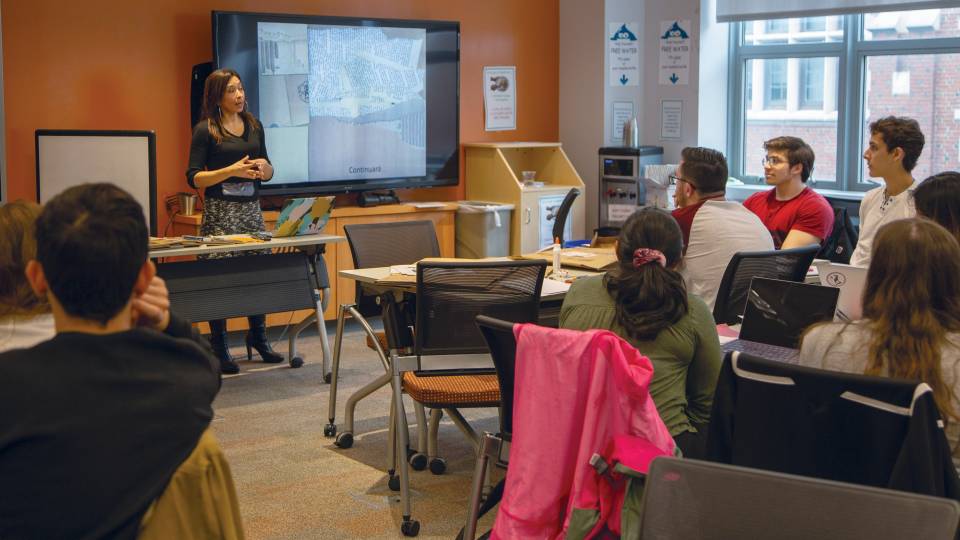Twenty-one faculty proposals to develop new classes or redesign existing courses have received funding this year through Princeton University's 250th Anniversary Fund for Innovation in Undergraduate Education.
The fund was established in 1996, in conjunction with Princeton's 250th anniversary, as a means of supporting the University's "central and enduring commitment to outstanding undergraduate teaching."
Each year, the fund supports initiatives that allow faculty to explore new pedagogical methods to enhance student learning, foster interdisciplinary connections, and redefine teaching and assessment practices. Ranging from freshman seminars to 300-level courses, classics to chemistry, the 2015 awards will cover a diverse set of initiatives to augment the undergraduate curriculum. This year's awardees were selected from among 40 proposals.
"We reviewed a variety of creative proposals from a broad range of disciplines," said Dean of the College Valerie Smith, co-chair of the selection committee. "Because of this fund, our undergraduates will benefit from new approaches to teaching, as well as the introduction of new concepts and technologies in the classroom."
Associate Dean of the College Lisa Herschbach, a member of the selection committee and director of the McGraw Center for Teaching and Learning, added, "McGraw looks forward to supporting this year's awardees as they implement new instructional technology and explore innovative avenues of teaching and assessment."
A sample of course proposals that received funding this year is listed below. The full list of the 21 awardees is available on the Office of the Dean of the College website.
- Mechanical and Aerospace Engineering: Professor Michael Littman will enhance the course "Engineering in the Modern World" by adding computer-based prototyping tools such as 3-D printers, computer-driven die cutters and CNC (computer numerical control) milling machines for use in student design projects. Presently, laboratory experiments involve testing known design relationships for structures, machines, networks or processes. The use of rapid prototyping tools will allow students to create and test their own designs for objects including model bridge towers, electrical circuit components and mechanical systems.
- Molecular Biology: As part of the revision of the department's undergraduate curriculum, Associate Professor Rebecca Burdine and Assistant Professor Danelle Devenport are re-envisioning the course "Cell and Developmental Biology" to be a sophomore-level course that follows the introductory biology sequence "Introduction to Cellular and Molecular Biology" and "Quantitative Principles in Cell and Molecular Biology." They will incorporate active learning techniques, formative assessments and video instruction into the course. The product will be a modified "flipped" classroom that will engage life science majors, or non-majors interested in the life sciences, in understanding research approaches and interpretation through increased classroom engagement.
- Sociology: Musgrave Professor of Sociology Miguel Centeno, a professor of sociology and international affairs and chair of the Department of Sociology, will co-teach with lecturer Rachael Ferguson a new course in the spring 2016 semester. The course will use ethnographic field work and historical evidence to examine the concept of discipline as a technique through which it is possible to achieve skills, expertise and an exalted state of existential peace, and how this is a fundamental part of the toolkit that provides the foundations for social order.
- Spanish and Portuguese Languages and Cultures: Associate Professor Germán Labrador Méndez will teach a 300-level seminar focused on the contemporary study of Latina/o cultures in various U.S., Caribbean and Spanish cities. The course pursues a transnational and expansive sense of Latina/o to investigate new understandings of the global flow of urban cultures that persist in the wake of the Spanish empire. Flamenco, hip hop, reggaeton, cumbia, graffiti, arts, films and performances will be studied alongside the 2008 financial crisis, immigration and memory.




